On March 11, 2020, the day before Manitoba reported its first infection of the coronavirus, Bronwyn Dobchuk-Land stood up in a multipurpose room at First Mennonite Church in Winnipeg to give a lecture exploring the question: How is it that Winnipeg has so many police, and so little justice and peace?
Over the course of her hour-long talk, the University of Winnipeg criminal justice professor examined how nearly 30 percent of Winnipeg’s city budget is spent on the Winnipeg Police Service (WPS), a bigger single portion than any other spending pot in the city coffers. At the same time, Dobchuk-Land said, the WPS doesn’t prevent crime, and officers spend most of their time responding to situations that they don’t really have the tools or training to actually solve or resolve—such as domestic violence-related incidents and well-being checks.
Dobchuk-Land wondered what Winnipeg might look like if 10 years ago, when the police budget started to drastically inflate, the city had chosen instead to invest in public housing, treatment facilities, detox centres, 24-hour safe spaces for people using drugs, increases in the minimum wage, increases in social assistance, and crisis response teams with nurses and mental health professionals at the centre.
“People who reached crisis points that we hear about as criminal incidents in the news would not reach those points if they had interventions earlier on,” Dobchuk-Land said, adding later: “We have to shift where we direct energy and resources; we have to stop investing in trying hard to improve institutions that are never going to be well-equipped to solve the complex needs that exist in our society.”
David Driedger, a pastor at First Mennonite, invited Dobchuk-Land to give the lecture in an attempt to start a conversation at the church about the role of police in society. Driedger considered joining the RCMP when he was a young adult, but over the last year-and-a-half, he has become increasingly invested in understanding and promoting the idea of defunding and abolishing the police.
“For Mennonites wishing to fully develop and follow a peace stance, it should be given more attention,” Driedger told Canadian Mennonite in June.
Driedger is part of a growing group of Winnipeggers, including a number of Mennonites, who are critical of policing. The murder of George Floyd at the hands of Minneapolis Police Department officer Derek Chauvin—while several of Chauvin’s peers watched and did nothing—in May 2020 provoked a reckoning over the role of police in society, but the conversation in Winnipeg started gaining momentum even earlier. The month before Floyd’s murder, the WPS sparked outrage when one of its officers shot Eishia Hudson, a 16-year-old Indigenous youth, following a robbery, car chase and collision. Hudson died in hospital. (The Independent Investigation Unit of Manitoba, which investigates all serious incidents involving police officers in the province, announced in January that no criminal charges would be laid against the officer who shot Hudson.)
Oppressive structures
Julia Thiessen, a member at Charleswood Mennonite Church, chooses her words carefully when describing her interest in police and prison abolition. For Thiessen, abolition is an ideal that she’s not sure society will ever reach. At the same time, it’s worth working toward.
She stresses that she critiques the system of policing, rather than individual people who are police officers. “We all participate in institutions that are flawed and structures that are oppressive, so when I start being critical of policing, it’s not because that’s the only piece of our society that’s oppressive,” she said, citing herself as an example: “I’m a teacher, and one of the things I had to learn is how education is oppressive.”
Thiessen’s opposition to policing comes from the same place as her opposition to the military: a commitment to nonviolence inspired by the life of Jesus.
“One thing [policing] is very effective at is turning those people who should be our neighbours into our enemies, and that’s where I would come back to my Anabaptist principles,” she said. “To all those who are hesitant about abolition because they feel [that] police protect them, I would ask: Protect you from whom? And why are those people your enemies?
“We know that by far the people who are criminalized are poor and racialized, and their crimes are largely participating in a street economy and not having the access [to the same resources] that those who are wealthy have. If those are our enemies, if that’s who we need to be protected from, then I think we need to be neighbours differently and be better neighbours.”
Nate De Avila, who goes to Sargent Avenue Mennonite Church, has been interested in police and prison abolition for more than a decade. He links those interests to both his beliefs as an Anabaptist Christian and his grandparents’ experiences as conscientious objectors.
“The recent trend of equipping the police with what were previously military-grade weapons and defenses makes it pretty easy to look at your own [Mennonite] history and think about the types of violences that your own family was avoiding in the past, and realizing those capabilities are walking up and down your street now, as opposed to being only flexed during a war,” De Avila said.
He is quick to point to the history of community organizers, many of them from BIPOC communities, who have long called for defunding the police and abolishing prisons.
“I would hope that people understand police defunding and prison abolition as a movement toward greater safety for everyone,” De Avila said. “Oftentimes, it gets represented as exactly the opposite—as a movement toward chaos—and it’s just not that.”
Reallocate resources
Last month, the Winnipeg Free Press published a feature article exploring the rising cost of emergency services in Winnipeg. The article reported that, despite contrary claims of law enforcement, union leaders and criminal-justice policy makers, every academic who spoke to the Free Press said there is no relationship between police funding and crime rates.
“How much money we put into policing has no impact on crime—every criminologist, regardless of political stripe, will tell you that,” Christian Leuprecht, a professor at both the Royal Military College of Canada and Queen’s University, told the Free Press.
Dobchuk-Land expressed something similar during her lecture: “…We know as a matter of fact that rates of policing are not correlated with rates of crime—there’s very little relationship. The levers of crime, so to speak, and violence, are outside the control of the police.”
In September 2019, a community group called Winnipeg Police Cause Harm (WPCH) formed in response to the deaths of several Indigenous and Black people, including Chad Williams, Machuar Madut, Sean Thompson and Randy Cochrane, who died following confrontations with the WPS. The organization does not believe that police and prisons can be reformed, and advocates defunding the WPS and allocating its resources to community organizations that address the root causes of poverty and crime—community organizations that provide the kinds of services Dobchuk-Land outlined in her lecture.
For Daniel Friesen, who attends Charleswood Mennonite Church, joining WPCH in late 2019 was “a no-brainer.”
“It’s a big fight, but it’s very worthy to do,” he said. “[I’m] hoping the arc of history will bend toward a world without police being seen as the obvious way for society to be organized.”
“If we reallocate resources away from police and toward programs and services that meet people’s needs—give people food, give people housing, give people a safe supply of drugs so they can use drugs safely and access to programs so they can stop using if that’s what they want to do, then the need for police will shrink and go away entirely,” Friesen added. “A world without police is a world where we look to meet people’s needs instead of looking for people who seem to be causing problems and [removing] them from society.”
Policing is inextricably linked to Settler colonialism, said River Martin, who attends Sargent Avenue Mennonite and is part of WPCH. As such, not everyone benefits equally from the work of the police.
“[There’s a] culture of serve and protect, but it’s not really that—it’s serve and protect the people we deem valuable,” Martin said. She added that as Black people, she and each of her six siblings have had negative experiences with law enforcement based on their ethnicity (albeit not in Winnipeg). “For a cause that’s supposed to protect us, it’s really letting us down in a lot of ways and the only people it ends up protecting are rich and white.”
When asked how her views on policing connect to her faith, Martin points to Article 22 in the Confession of Faith in a Mennonite Perspective, which addresses peace, justice and nonresistance. When Martin reads that article, she said, “it’s very clear to me… that [policing] doesn’t fit within the model of peace we’re asked to participate in.” Instead, Mennonites are called to actively engage in a meaningful way with what peace means. “There’s no way you can do that when you are within a system like the police that is inherently built on violence and controlling the population through means of force. There’s no room in there for peace.”
More conversation
Michael Pahl, executive minister of Mennonite Church Manitoba, has tweeted in support of police abolition. The conversation about defunding the police is one that he would like to see more MC Manitoba congregations having.
He points to Defund the Police? An Abolition Curriculum—a multimedia, online curriculum that Mennonite Church U.S.A. released earlier this year to help congregations and individuals think creatively about personal and community safety in a biblical context—and wonders if Canadian Mennonites could develop a similar resource to aid conversation.
“I know that we have police officers that are… part of our congregations, and we need to do this in a way where they don’t feel personally threatened [and] they can also participate in that conversation,” Pahl said. “There are so many important issues [today]. We can focus on any one of them, but I think it’s important to at least have this as a conversation that’s starting alongside other issues.”
Thiessen wonders why, as the conversation about defunding the police has become more mainstream, the Mennonite church hasn’t already found itself looking at the possibility of abolition.
“I’ve been surprised by the resistance I’ve had from fellow Anabaptists when I share these ideas,” she said. “I think if our nonviolence is going to mean anything today, we need to look at where structural violence is happening in our community and oppose that, whether or not it makes us individually safer.”
………………………….
Four police voices
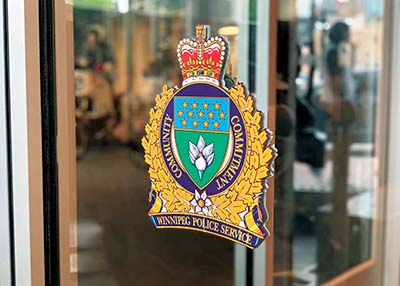 Gord Friesen recalls some of what he was thinking when, in 1982, he joined the Winnipeg Police Service (WPS) at the age of 20: “As Mennonites and as pacifists, if we expect there to be policing in our community… then why shouldn’t we be expected to do it?”
Gord Friesen recalls some of what he was thinking when, in 1982, he joined the Winnipeg Police Service (WPS) at the age of 20: “As Mennonites and as pacifists, if we expect there to be policing in our community… then why shouldn’t we be expected to do it?”
Canadian Mennonite spoke to Friesen and three other current or former members of the WPS. All four grew up in Mennonite congregations in southern Manitoba. One is active in a Mennonite church today; all four identify as Mennonite. They answered a range of questions, including (but not limited to): What drew you to police work? How do you reconcile coming from a pacifist tradition and carrying a gun? What do you enjoy about your work? What do you think about community members who are calling to defund the police?
Michael Klassen was in his early 20s and working in a grocery store when he witnessed first-hand the way the police helped his friend who was in distress. Klassen had been thinking about changing careers to something that would give him more of a challenge, and the incident inspired him to join the WPS.
“After seeing that, [I thought]: that is an important job,” said Klassen, who has been with the service for 17 years. “That is really what I felt was a calling.”
For Andy Wahl, joining the WPS after spending a decade as a bartender was a way to move into a career where he could give back to the community.
“Every day, we come in and we get to help people,” says Wahl, an 18-year veteran of the force. “It seems like I’m oversimplifying it, but that’s the meat and potatoes of policing. There’s a call for service, someone needs help, and we go and we help.”
Each man said that coming from a heritage that focuses on actively resisting violence and warfare has never conflicted with his work, and that the use of force is always a last resort. The first thing they try is to mediate the situation by talking with the individuals involved.
“The biggest asset you have as a police officer is your ability to communicate, because every call we go to, we’re engaging with people and we’re talking with people,” Wahl said.
“The police use force to overcome resistance when [they’re] arresting somebody,” added Werner Toews, who retired in 2013 after 25 years with the WPS. “That’s the only reason it’s used. Or, if somebody wants to harm somebody with a knife or weapon, to stop that threat, you need to use force.… In a society where we want rules, where we want law and order, that’s the price that we have to pay.”
It can be hurtful when people are critical of the police, Klassen said, because the WPS is there to help people.
“I like to compare football players to police officers,” he said. “Just as a football team has a variety of people playing different positions, so does policing.… We may not always agree on everything, but we are all a team, and we all have the same goal.”
“We’re in a crazy profession where the acts of one person can kind of paint everybody with the same brush,” Wahl added. “It’s a crazy time we live in, but I would just say the men and women of the Winnipeg Police Service [are] there to help. It sounds like a cheesy company line, but it’s true.”
David Driedger, a pastor at First Mennonite Church who is critical of policing, offered a different perspective. Driedger saw a woman in distress lying on the boulevard. He asked her if there was anyone he could call for her. “Don’t call the police,” Driedger recalled the woman saying. “They [called] me an a–h— and told me to stop wasting their time.” The Instagram account When WPG Police Cause Harm has collected similar stories of police officers alledgedly abusing their power and causing citizens distress.
“I just do not see how our current model is in any way adequate, particularly to those most in need of support,” Driedger said.
Friesen, who retired in 2018 after almost 36 years with the WPS, follows Winnipeg Police Cause Harm on Instagram and reads about defunding the police. He is aware of the ways colonialism has shaped policing and the systemic injustice that leads marginalized communities to be overrepresented in the justice system.
While he does not advocate for abolition, Friesen does support police reform.
“I certainly understand defunding the police, and I understand that movement, but I think the police are a bit of a lightning rod for that,” he said. “We come from this community and we’re carrying out community expectations.”
For people like Driedger and organizations like Winnipeg Police Cause Harm, community expectations are changing.
“I totally accept that people will have positive experiences with the police—that in focused situations, [officers will] have done a positive thing,” Driedger said. “I would say that’s in spite of a framework that will inevitably continue to lead to an overall negative impact or is less helpful than we should be working toward.”
………………………….
For discussion
1. What are some examples of personal encounters you have had with the police? Did you feel respected in these situations? Do you think the police tend to use force or the threat of violence too quickly?
2. According to Bronwyn Dobchuk-Land, the Winnipeg Police Service spends most of its time dealing with domestic violence-related incidents and well-being checks. What are some other ways for society to intervene in these situations?
3. Daniel Friesen believes society needs to reallocate resources away from the police and spend more on people’s needs. Do you agree? What could we do to reduce violence in our society?
—By Barb Draper


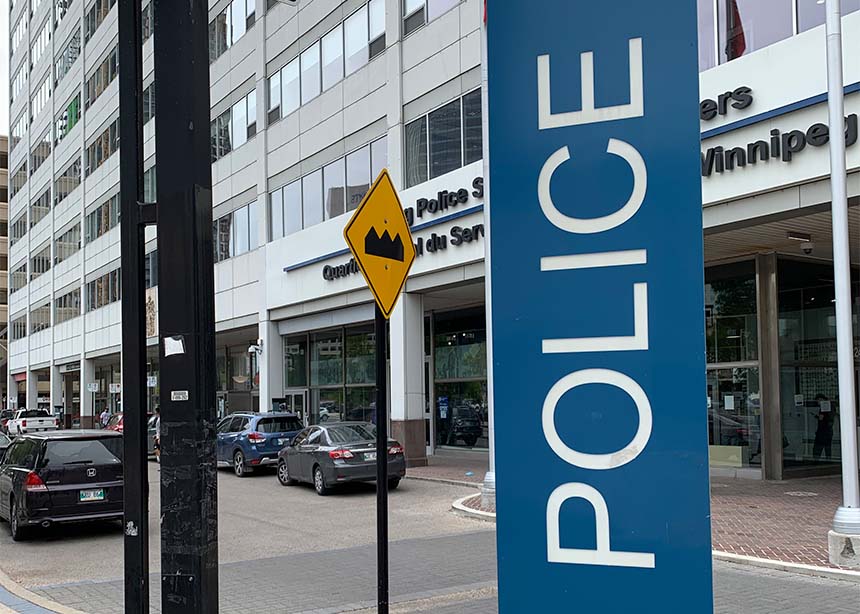


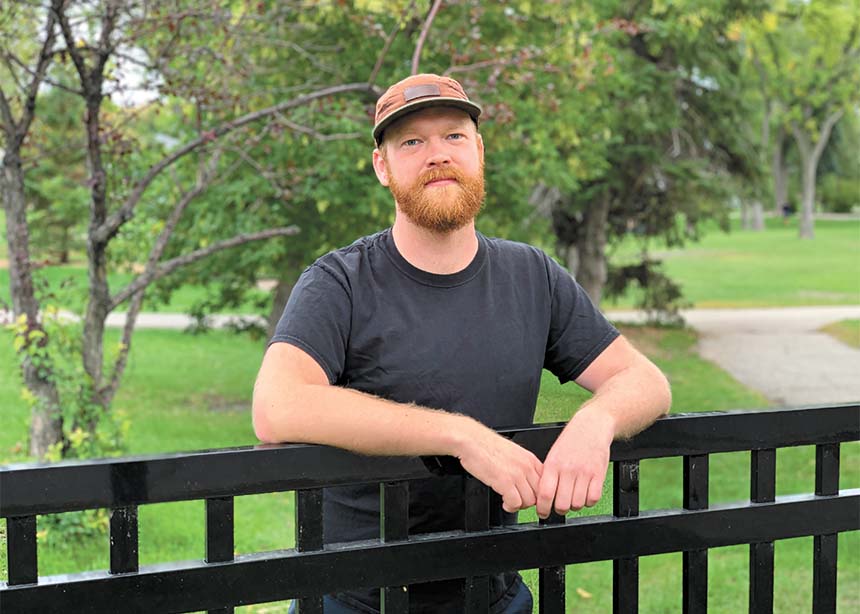

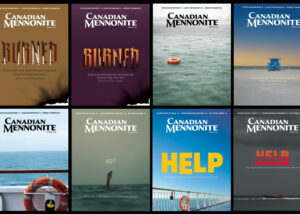
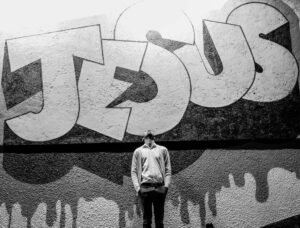

Leave a Reply
You must be logged in to post a comment.